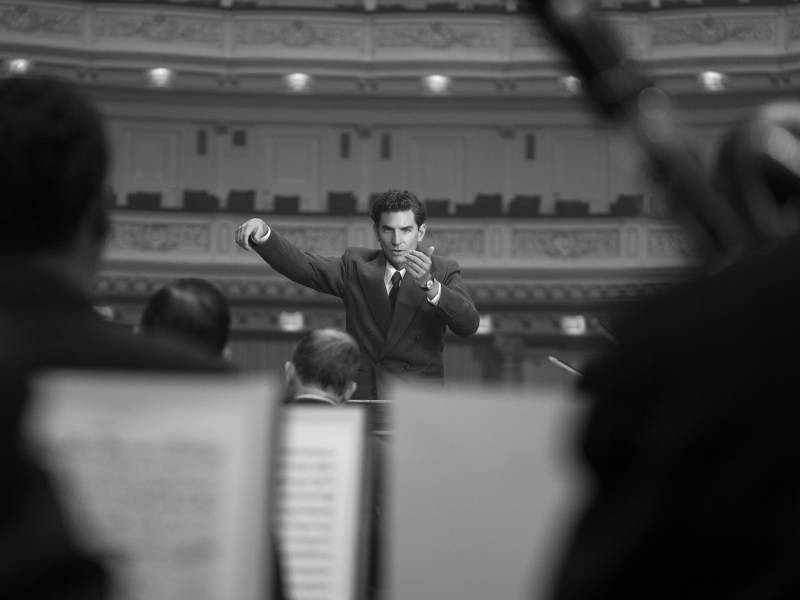Several reels into Bradley Cooper’s manically over-orchestrated Maestro, Mr. and Mrs. Leonard Bernstein (Cooper and Carey Mulligan) glide into their immaculate 1950s New York living room for a remote interview for CBS journalist Edward R. Murrow’s Person to Person show.
We’re still in the black-and-white half of the film, and the alabaster curlicues spiraling from the century’s more stylish and dexterous chain-smokers distract momentarily from Murrow’s question about the attractions of composing versus conducting music. Be advised this is not an isolated occurrence: Every single shot in this movie calls attention to itself with the subtlety of a blast of French horns.
The crux of Maestro lies in Bernstein’s answer. He describes composition as a creative, private act (in a word, art) and conducting as a public performance. Film directors who write their own screenplays (in a word, auteurs) frequently describe a similar dichotomy, with the “public” aspect consisting of collaboration in production.

Cooper and co-screenwriter Josh Singer have conceived and structured Maestro (opening Wednesday, Nov. 22 in theaters before debuting Dec. 20 on Netflix) to highlight the tensions and contradictions between the charismatic public figure of Leonard Bernstein — an ambitious and acclaimed wunderkind who became a full-fledged star and household name — and the private man: an artist frustrated by his insufficient number of high-art compositions, a loving husband and father, and a lover of men.





